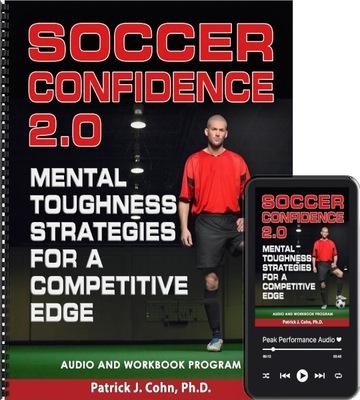
How Mental Training can Help Soccer Players
Mental training can help soccer players when they are injured. You probably think, “Nothing! I’m injured. I can’t practice. I can’t play. This sucks.”
When you engage in this negative thought process, you feel helpless and sorry for yourself. Everything seems outside of your control.
In that instance, you are solely focused on what you cannot do: can’t play in games, can’t train with your team, and can’t keep up with your friends/ teammates.
You may worry your position on the team is in jeopardy. You worked so hard to get to where you are and now it has all been taken away. When you’re upset, tense, stressed, or anxious about your circumstances, you interfere with your body’s ability to recuperate and heal.
Let’s look at an alternate response…
Alex Robertson is a midfielder for Manchester City. Robertson signed with Manchester City as an Under-15. Since then, Robertson has progressed to the EDS squad and signed his first professional contract in July 2020 at the age of 17.
Robertson suffered a string of injuries that sidelined him for a significant time. While injured, Robertson focused on what he could control and what he could do.
ROBERTSON: “I had support from the club and sports psychologists. I got to do a lot of analysis. I got to break down my own game, the rest of my team and, other first-teamers. That has helped me understand more while I [missed] out on playing.”
Robertson used his time off to his advantage and is a better and more prepared player since returning to the field.
The question to ask yourself is, “What can I do?” You may not be able to train physically but you can train mentally.
Mental Training can Improve Your Mental Skills
You may not be able to play games, but you can watch other players, evaluate your game, and come up with a plan to improve. You can learn to visualize playing at a higher level, strengthening your mental game and confidence.
You may not be able to practice with your team, but you can still go to practices and support your teammates.
You can always find a way to advance your game, build your confidence, empower yourself and be ready to go when you are cleared for action. When you use your time to your advantage, you will come back mentally tougher than before the injury.
Being Productive Even While Injured
Make a training plan for yourself. Not just what you can do but what you will do.
Make your plan specific. Schedule your mental training, physical therapy, or physical training to make productive use of your time. How many times will you train these areas? What specifically will you do?
You might not be able to physically practice, but you can practice mentally. Spend a few minutes each day visualizing yourself playing healthy and with confidence. What you see you can achieve.
Related Sports Psychology Articles
- Peak Mental Conditioning for Soccer
- How to Manage a Long-Term Soccer Injury
- How to Anticipate and Cope During Soccer Games
- Subscribe to The Sports Psychology Podcast on iTunes
- Subscribe to The Sports Psychology Podcast on Spotify
Download a free sports psychology report to improve your mental game!
Learn more about our one-on-one mental game coaching.
Boost Confidence in Soccer

“Soccer Confidence 2.0” 3-CD and Workbook program is the most comprehensive mental game program we’ve offered to the public. We’re virtually giving away all our mental game secrets for the incredibly low price of only $197.00 including the free bonuses!
“Soccer Confidence” is a complete brain dump of the TOP NINE mental training sessions we teach our soccer players to help them boost their mental game and improve consistency – from how to mentally prepare for games to performing under pressure to building unstoppable confidence.
